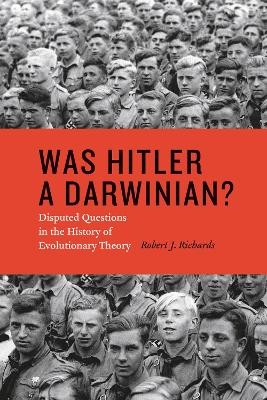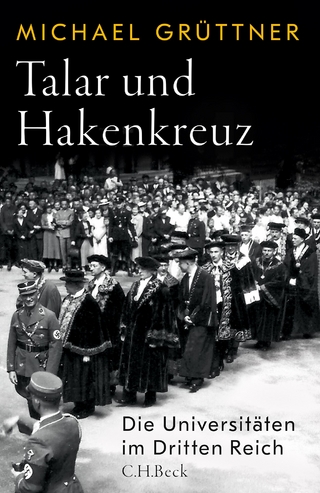
Was Hitler a Darwinian?
Disputed Questions in the History of Evolutionary Theory
Seiten
2013
University of Chicago Press (Verlag)
978-0-226-05893-1 (ISBN)
University of Chicago Press (Verlag)
978-0-226-05893-1 (ISBN)
According to the standard interpretation, the principle of survival of the fittest has rendered human behavior, ultimately selfish. Few doubt that Darwinian theory, especially as construed by the master's German disciple, Ernst Haeckel, inspired Hitler and led to Nazi atrocities. The author argues that this orthodox view is wrongheaded.
In tracing the history of Darwin's accomplishment and the trajectory of evolutionary theory during the late nineteenth and early twentieth centuries, most scholars agree that Darwin introduced blind mechanism into biology, thus banishing moral values from the understanding of nature. According to the standard interpretation, the principle of survival of the fittest has rendered human behavior, including moral behavior, ultimately selfish. Few doubt that Darwinian theory, especially as construed by the master's German disciple, Ernst Haeckel, inspired Hitler and led to Nazi atrocities. In this collection of essays, Robert J. Richards argues that this orthodox view is wrongheaded. A close historical examination reveals that Darwin, in more traditional fashion, constructed nature with a moral spine and provided it with a goal: man as a moral creature.
The book takes up many topics-including the character of Darwin's chief principles of natural selection and divergence, his dispute with Alfred Russel Wallace over man's big brain, the role of language in human development, his relationship to Herbert Spencer, how much his views had in common with Haeckel's, and the general problem of progress in evolution. Moreover, Richards takes a forceful stand on the timely issue of whether Darwin is to blame for Hitler's atrocities. Was Hitler a Darwinian? is intellectual history at its boldest.
In tracing the history of Darwin's accomplishment and the trajectory of evolutionary theory during the late nineteenth and early twentieth centuries, most scholars agree that Darwin introduced blind mechanism into biology, thus banishing moral values from the understanding of nature. According to the standard interpretation, the principle of survival of the fittest has rendered human behavior, including moral behavior, ultimately selfish. Few doubt that Darwinian theory, especially as construed by the master's German disciple, Ernst Haeckel, inspired Hitler and led to Nazi atrocities. In this collection of essays, Robert J. Richards argues that this orthodox view is wrongheaded. A close historical examination reveals that Darwin, in more traditional fashion, constructed nature with a moral spine and provided it with a goal: man as a moral creature.
The book takes up many topics-including the character of Darwin's chief principles of natural selection and divergence, his dispute with Alfred Russel Wallace over man's big brain, the role of language in human development, his relationship to Herbert Spencer, how much his views had in common with Haeckel's, and the general problem of progress in evolution. Moreover, Richards takes a forceful stand on the timely issue of whether Darwin is to blame for Hitler's atrocities. Was Hitler a Darwinian? is intellectual history at its boldest.
Robert J. Richards is the Morris Fishbein Distinguished Service Professor of the History of Science and Medicine; professor in the Departments of History, Philosophy, and Psychology and in the Committee on Conceptual and Historical Studies of Science; and director of the Fishbein Center for the History of Science and Medicine, all at the University of Chicago. He is the author of numerous books, including, most recently, The Tragic Sense of Life, also published by the University of Chicago Press. He lives in Chicago.
| Sprache | englisch |
|---|---|
| Maße | 16 x 23 mm |
| Gewicht | 482 g |
| Themenwelt | Geschichte ► Allgemeine Geschichte ► 1918 bis 1945 |
| Geisteswissenschaften ► Geschichte ► Regional- / Ländergeschichte | |
| Naturwissenschaften ► Biologie ► Evolution | |
| ISBN-10 | 0-226-05893-X / 022605893X |
| ISBN-13 | 978-0-226-05893-1 / 9780226058931 |
| Zustand | Neuware |
| Haben Sie eine Frage zum Produkt? |
Mehr entdecken
aus dem Bereich
aus dem Bereich
Belzec, Sobibór, Treblinka und die Aktion Reinhardt
Buch | Softcover (2023)
C.H.Beck (Verlag)
16,00 €
die Universitäten im Dritten Reich
Buch | Hardcover (2024)
C.H.Beck (Verlag)
44,00 €


